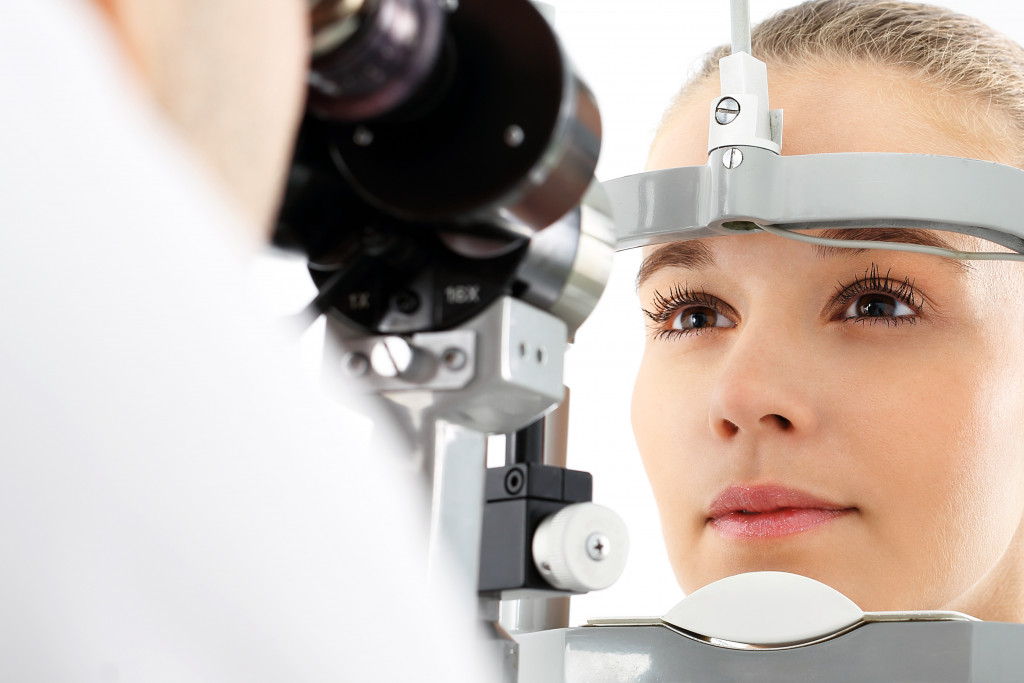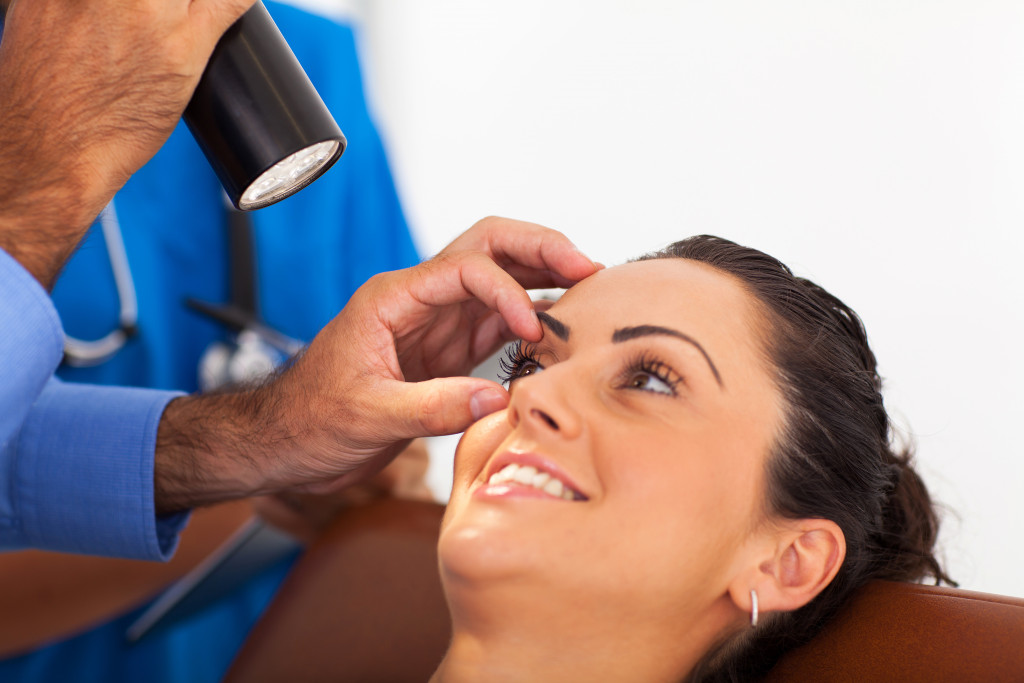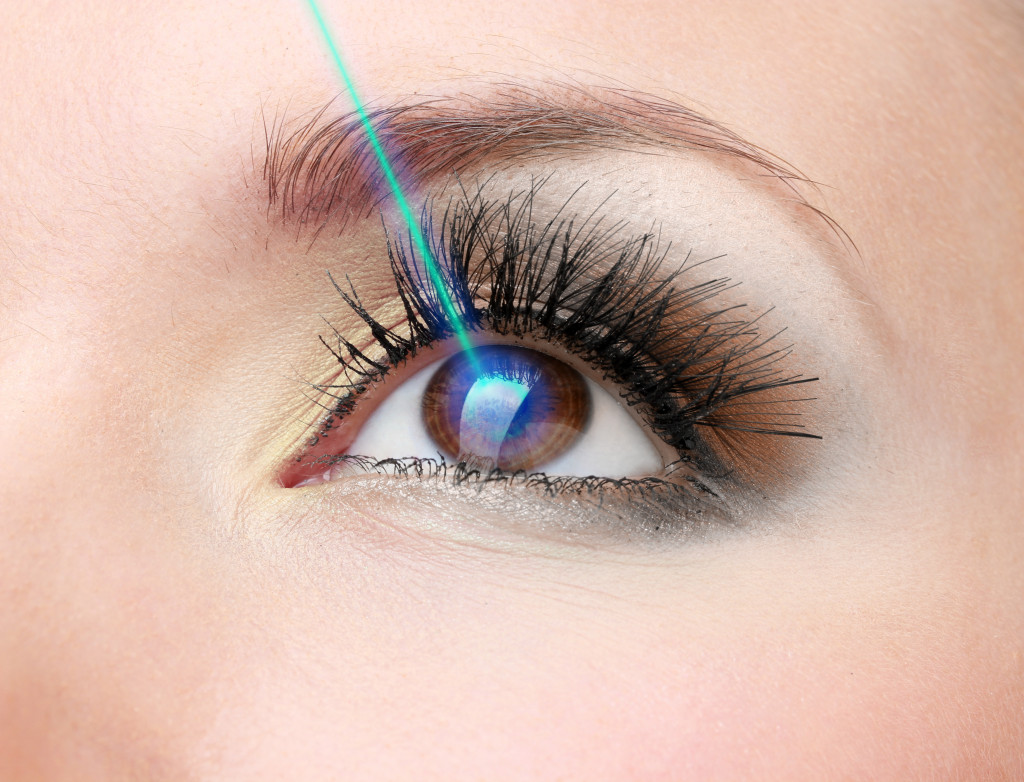- Revolutionize your approach to eye health with lifestyle changes like reducing screen time and eating a balanced diet.
- Eyeglasses, contact lenses, refractive surgery, or laser treatments can manage common eye problems such as myopia, hyperopia, cataracts, and glaucoma.
- To maintain good vision, practice preventive measures, including wearing sunglasses with UV protection and frequently washing your hands.
- Integrate healthy habits like exercising regularly and maintaining a healthy weight to reduce the risk of developing eye diseases.
- For additional relief, consider alternative therapies like acupuncture, meditation, yoga, and herbal supplements like bilberry extract and ginkgo biloba.
The eyes are one of the most vital parts of the body that help people experience the beautiful world around them. Unfortunately, many people tend to neglect the importance of eye health until it’s too late. With the increasing use of screens and gadgets daily, it’s essential to revolutionize the approach to eye care.
The eyes are vulnerable to visual impairments like myopia, cataracts, glaucoma, and other age-related eye diseases. With aging, people tend to develop decreasing eye performance that requires specialized interventions.
Hence, prioritizing eye health is crucial as it can prevent or slow down the progression of eye diseases. Regular eye check-ups, a healthy diet, and lifestyle choices are excellent ways to care for your eyes. Proper eye care will help maintain the quality of life across all age groups.
This blog will highlight the importance of prioritizing eye health and discuss common eye problems people face daily. Moreover, this will also provide practical tips to maintain good eye health and care and revolutionize your eye-care approach.
Common Eye Problems
Several eye problems affect people worldwide; some are more common than others. Here are some of the most common eye problems to be aware of:
Myopia
Myopia or nearsightedness is a common vision condition in which distant objects appear blurred. This condition occurs when the eyeball grows too long, distorting the eye’s focus.
This eye problem can develop in children and teenagers and increase into adulthood unless controlled. Consequently, one may require glasses, contact lenses, or refractive surgery to correct this vision impairment.
Hyperopia
Hyperopia is a vision condition that makes close objects appear blurry. In this condition, the eyeball is shorter than average, or the cornea is too flat, making it difficult to focus on nearby objects.
This vision impairment is commonly known as farsightedness and often requires eyeglasses, contact lenses, or refractive surgery to correct the vision.
Cataracts
Cataracts are another common eye condition prevalent among older adults. In this condition, the eye’s natural lens becomes cloudy, affecting vision and leading to blindness if left untreated. Cataracts are treatable with surgery, where the cloudy lens is removed and replaced with a clear, artificial lens implant.
Glaucoma
Glaucoma causes progressive damage to the optic nerve leading to vision loss. It often occurs due to high intraocular pressure, which destroys the optic nerve fibers, leading to permanent blindness. Glaucoma can be managed through daily eye drops, surgery, or laser treatment if it is detected early.

Solutions for the Eye Problems
The eyes are one of the most essential organs in the body, responsible for the sense of sight and helping people navigate through life. As much as people depend on them, caring for and treating them well is essential. Here are some common solutions for eye problems.
Prescription Eyeglasses or Contact Lenses
Prescription eyeglasses and contact lenses are popular options for correcting vision issues. Both options improve your vision but differ in several ways, including convenience, maintenance, and comfort.
Eyeglasses allow for the correction of more severe problems, but they can slide down the bridge of your nose or cause discomfort behind the ears. In contrast, contact lenses offer better flexibility and comfort but require proper cleanliness to prevent infections.
LASIK Eye Surgery
LASIK eye surgery is a popular surgery that can correct nearsightedness, farsightedness, and astigmatism. The surgery involves using a laser to reshape your cornea, thus improving vision. The procedure is safe and efficient, with a quick recovery period.
Nevertheless, it is essential to note that the surgery is only suitable for some, and consulting your eye doctor beforehand is crucial.
Eye Drops and Moisturizers
Eye drops and moisturizers help keep your eyes hydrated and protect them from dryness. Dryness can cause irritation, redness, and other complications. Eye drops mimic the natural tears in your eyes, ensuring proper lubrication. Moisturizers can also help protect your eyes from dryness; most are safe for frequent use.
Revolutionizing Your Approach to Eye Care
To revolutionize your eye care approach, you must start by embracing change. This means letting go of old habits and adopting new ones prioritizing eye health.
Lifestyle Changes for Better Eye Health
Besides reducing screen time, you can make several other lifestyle changes to maintain good vision.
First, stay hydrated by drinking plenty of water throughout the day. This keeps your eyes lubricated and prevents dryness, itching, and irritation.
Second, eat a balanced diet with plenty of fruits and vegetables, especially those rich in vitamins A, C, and E, and omega-3 fatty acids. This supports eye health and reduces the risk of developing age-related eye diseases like macular degeneration and cataracts.
Integrating Preventive Measures Into Daily Routines
Preventive measures like wearing sunglasses, avoiding smoking, and getting regular eye exams are crucial to maintaining good eye health. Wearing sunglasses with UV protection shields your eyes from harmful sun rays that can cause corneal damage, cataracts, and age-related macular degeneration.
Quitting smoking reduces the risk of developing eye diseases, including macular degeneration, cataracts, and optic nerve damage. Regular eye exams help detect vision changes and diagnose eye diseases before significant damage occurs.
Adopting Healthy Habits for Optimal Vision
Besides lifestyle changes and preventive measures, healthy habits can keep your eyes in optimal condition. For instance, practicing good eye hygiene by washing your hands before touching your eyes can prevent infections.
Also, maintaining a healthy weight and exercising regularly lowers your risk of developing diabetes and other health conditions that can damage your eyes.
Exploring Alternative Therapies and Treatments
Despite taking preventive measures and adopting healthy habits, some individuals may still experience eye problems.
Exploring alternative therapies and treatments may offer relief and support eye health in such cases. These include acupuncture, meditation, yoga, and herbal supplements like bilberry extract and ginkgo biloba.
Acupuncture is an ancient Chinese therapy that involves inserting fine needles into specific points on the body to alleviate pain and relieve stress.
Meditation and yoga help reduce stress and promote relaxation, improving eye function. Bilberry extract and ginkgo biloba, on the other hand, contain antioxidants that protect the eyes and improve blood flow.

The vision is a precious gift. Hence, it is essential to prioritize eye health and revolutionize our approach to eye care. Early detection and prompt treatment of eye conditions can prevent severe eye problems, saving one’s vision and quality of life.
Maintaining a healthy diet, lifestyle, and regular eye check-ups can safeguard your eyes and enjoy the world’s beauty for a long time.

